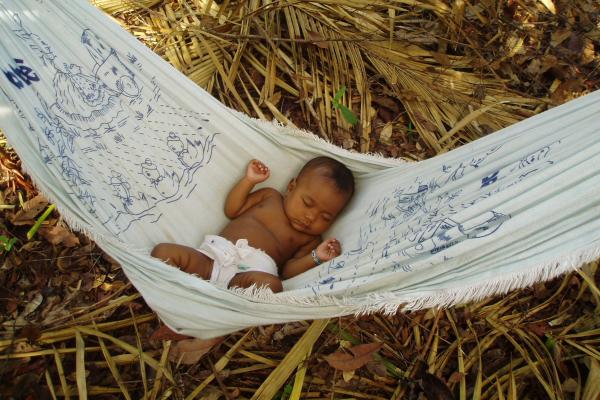Ecoculturing the Infant Gut Microbiome

Congratulations to Dr. Barbara Piperata (PI) for her award of a National Science Foundation (NSF) grant to conduct medical anthropology research in Brazil. Dr. Piperata and her interdisciplinary team will be conducting a longitudinal study—in which they will follow a cohort of infants from birth through the first two years of life. The goals of this study are to (1) understand how environmental conditions in the home and infant’s daily routines interact to shape exposure to intestinal pathogens; and, (2) track how that exposure shapes the formation of the infant gut microbiome.
Why does the gut microbiome matter?
Did you know that the organisms that make up your microbiome outnumber your own body’s cells? These microorganisms live on our skin, mouths, mammary glands, and gastrointestinal tract. The community occupying the gastrointestinal tract is the largest and, during infancy, plays a critical role in the development of your brain and immune system. It also shapes your nutrition and risk of future disease.
Why is anthropology important for understanding the infant gut microbiome?
We know that the human gut microbiome varies between human populations. What explains that variation? One, underexplored factor is infection with intestinal pathogens, a leading cause of infant disease and mortality. How are infants exposed to these pathogens? Anthropologists are good at figuring that out! To do this, Dr. Piperata and her team, which includes Dr. Jiyoung Lee (environmental microbiology) and Dr. Vanessa Hale (veterinary medicine) will collect detailed data on the household environment, including water and soil samples to detect the presence of pathogens in the home. They will also investigate how cultural norms and parental goals shape infant care routines – for example, what infants are fed, who cares for them, and the contact they have with surfaces and animals in their homes. With the help of biostatistician Dr. Chi Song, the team will connect the environmental data and care routines with the gut microbiome data collected from infants’ fecal samples. The research will begin in January 2020.
If you are interested in learning more about this project or how a degree (BA, BS) in Medical Anthropology prepares you to tackle these types of research questions, contact Dr. Barbara Piperata at piperata.1@osu.edu
